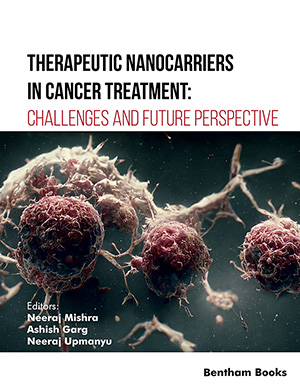Abstract
As stated by Globocan, there were around 82 lakh cancer-related deaths and
141 lakh new cancer diagnoses worldwide in 2012. Normal genes that are expressed
improperly or exhibit aberrant expression may cause neoplasia, often known as cancer.
Oncogenes are mutated forms of normal cellular genes that contribute to the
development of cancer. Typically, oncogenes govern cell development and
differentiation. Proapoptotic genes initiate cell death and decrease the number of cells.
Antioncogens, or tumour suppressor genes, regulate cell division negatively. Tumours
are caused by genes that directly or indirectly control cellular proliferation or
inhibition, or that govern apoptosis or any sort of cell death. As a target for the
development of novel cancer treatments, tumour cell metabolism has gained substantial
attention. Identification of cancer has always been a crucial aspect of diagnosis and
therapy. Markers for cancer are one of the most effective approaches for recognising,
diagnosing, treating, monitoring progressions, and evaluating chemical resistance. A
biomarker is “a distinctive biochemical, genetic, or molecular characteristic or material
that signals a particular biological state or treatment.” Tumour biomarkers are often
seen in moderation in the absence of a tumour. The activation of CDKs (protein
kinases) aids in the progression of cells from one phase of the cell cycle to the next.
Various isoforms of CDK/cyclin complexes are capable of binding with a regulating
cyclin protein. Aloisine is a potent inhibitor of CDK1, CDK 2, and CDK 5, and it has
been observed that GSK3 (Glycogen synthase kinase 3) terminates cell division.
Antimicrotubule medicines cause the mitotic Chk to halt the cell cycle by inhibiting microtubules. The presence of cancer cells results in enhanced cell proliferation and
expansion. They can result in an absence of apoptosis and excessive cell proliferation.
DNA damage or significant cellular stress might result in cell death. In cancer cells,
proapoptosis is often missing or inhibited. iPSCs and cancer cells have comparable
transcriptome profiles, including surface antigen markers identified by the immune
system. MSCs producing IFN- accelerate the killing of tumour cells, augment NK cell
activity, and decrease angiogenesis. This chapter provides an introduction of the
fundamentals of cancer biology, including its characteristics, metabolic processes, and
biomarkers.
Keywords: Biomarkers, Cancer biology and tumour vasculature, Cell Cycle, Genes, Metastasis.






















